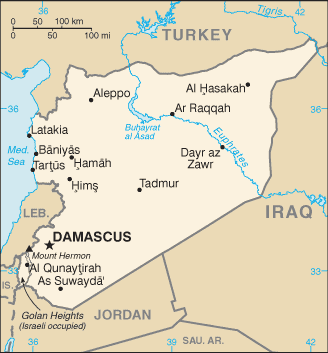Secretary of State John Kerry and his Russian counterpart Foreign Minister Sergey Lavrov have announced a deal on a ceasefire in Syria today, saying that the plan is to halt hostilities in the country as of sunset on Monday, September 12.
 As with the previous ceasefire in February, this deal will not include either the Nusra Front or ISIS. Kerry complained the previous deal’s allowing of strikes against Nusra created problems, and insisted that the new deal will work better, even though Nusra will still be targeted.
As with the previous ceasefire in February, this deal will not include either the Nusra Front or ISIS. Kerry complained the previous deal’s allowing of strikes against Nusra created problems, and insisted that the new deal will work better, even though Nusra will still be targeted.
The big difference this time is that Russia and the United States will make joint “strategic” decisions on which rebels are actually Nusra and which are not. Nusra has close ties with a lot of US-backed rebels, and Kerry warned it would be “unwise” for those groups to maintain such ties.
That previous ceasefire saw Nusra expand dramatically, becoming a major player around the northern city of Aleppo. The US-Russia talks began with increasing US disquiet about Nusra’s expansion, after months of demanding Russia stop all strikes against Nusra unilaterally. It remains unclear if under the deal the US will actually target Nusra, or if this simply will amount to agreeing that Russia and the Syrian government can target jointly confirmed Nusra targets.
There was no indication that this would lead to renewed peace talks any time soon, and indeed Kerry insisted that the idea would only be discussed with US-backed rebels after the ceasefire was in place, and assuming it both led to a reduction of violence and an increase in aid delivery to rebel territories.
Syria’s government has endorsed the new ceasefire, though rebels appear deeply divided on the matter. This has proven a stumbling block in the past, with some rebels not abiding by the deal and getting into fights, and the US and Russia exchanging blame for the deal not holding.


